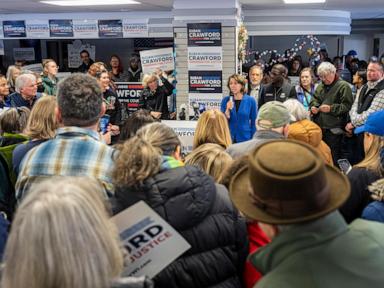The Supreme Court on Tuesday seemed likely to uphold a law allowing Americans injured by acts of terror in the Middle East to take Palestinian leadership groups to U.S. courts for damages.
In 2019, Congress amended federal terrorism law to let victim lawsuits move forward against the Palestinian Authority (PA) and Palestine Liberation Organization (PLO), responding to a series of court decisions that found the victim’s families had no jurisdiction to sue.
The high court is now being asked to determine whether the law violates due process protections by forcing the groups to consent to federal courts’ authority.
However, the justices also seemed sensitive to the level of deference owed to Congress and the White House since the case could have ramifications for national security and foreign affairs.
Deputy Solicitor General Edwin Kneedler argued that Congress and the executive branch determined that finding the PLO and PA consented to jurisdiction in federal courts would prevent terrorism – and the courts should not override that assessment. He argued that both branches of U.S. government are owed “virtually absolute deference.”
Justice Brett Kavanaugh agreed that the two branches, in seeking to stop the “recurring problem of terrorism,” reached the same conclusion to allow accountability in U.S. courts. The judiciary perhaps should not wade in when it only “strikes us from our perch as unfair,” he said.
“Usually that’s a very sensitive decision for a federal court to make,” Kavanaugh said.
Kagan pressed the government over its reluctance still to assert that “anything Congress says goes.” She asked if the executive branch feared potential foreign policy ramifications, such as other countries being encouraged to treat U.S. citizens the same way.
“There could well be,” Kneedler said, though he indicated that he could not represent it as a reason to side with the government.
The justices heard oral arguments Tuesday in two consolidated cases: one DOJ appeal and an appeal by the family of Ari Fuld, an Israeli American fatally stabbed at a shopping mall in the West Bank in 2018.
Fuld’s case garnered bipartisan support, with House leadership from both parties, including Speaker Mike Johnson (R-La.) and Minority Leader Hakeem Jeffries (D-N.Y.), authorizing a friend-of-the-court brief. Another bipartisan group of lawmakers also filed an amicus brief.
The Biden administration initially intervened in Fuld’s case and another brought by 11 American families who originally sued the Palestinian leadership groups two decades ago for several attacks in Israel, winning more than $650 million in a 2015 trial.
In urging the justices not to remand the lawsuit, which would drag out litigation longer in lower courts, Kent Yalowitz, a lawyer for Fuld’s family, quipped that the case is at this point old enough to go to law school.
Despite acknowledging that across-the-aisle support, Kavanaugh questioned when, if ever, the courts would have footing to step in.
“I’m wondering when the great deference runs out,” he asked.
“We don’t think it would,” Kneedler replied.
The government argued that Congress’s determination to make the PA and PLO open to U.S. civil suits only if the groups made payments to representatives of terrorists who injured or killed Americans or maintained a certain presence in the country left the groups with a choice.
“Respondents had an opportunity to stop,” Kneedler said.
It’s not clear how far the justices’ support for the government and Fuld’s family might go. They appeared split on ...












